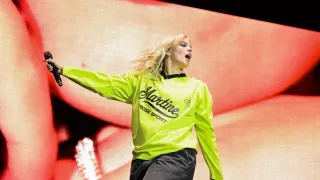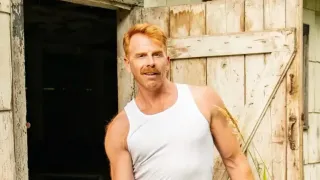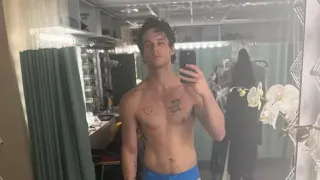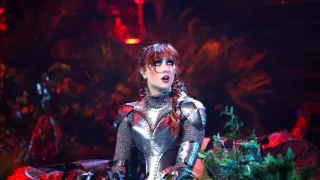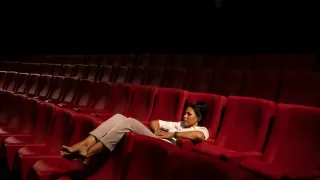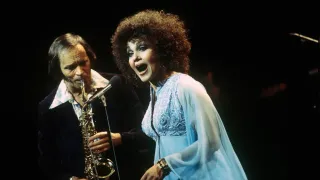
Jul 24
EDGE Interview: From Behind the Hits to Center Stage: Bonnie McKee’s “Play Hard” Era Begins
Ryan Reichard READ TIME: 8 MIN.
A decade after releasing her seminal project, “Bombastic,” Bonnie McKee is back with a new edition of the project called the “Play Hard” edition. The revamped version features new remixes and collaborators that spotlight the pop star’s musical roots as well where she is taking her music in the future. Elsewhere, McKee spills on her evolution as a songwriter and artist, delving into her creative process before dishing on working with the likes of Katy Perry and Kesha as well as her time at Tribecca and her upcoming new album.
EDGE: It’s been 10 years since you first released “Bombastic.” What made now the right time to revisit and reimagine these songs with the “Play Hard” edition?
Bonnie McKee: “Bombastic” is the gift that keeps on giving. I’ve gotten so many big syncs and connected with amazing fans and collaborators through it. Since it’s the 10-year anniversary - and my first indie release ever - I wanted to give it new life. We added five new remixes, and it was fun to hear the songs in a different light and collaborate with new people on old favorites.
EDGE: The new edition features a stacked remix lineup. How did you go about curating the remix collaborators for this project? Did you give them creative freedom or set a specific vision?
McKee: When it comes to remixes, I usually pick someone whose style I already love - I want to see what someone else can do with something I’ve created. Working with Dream Kid felt natural because we both have a love for '80s nostalgia, synthwave, and that whole vibe. He’s also funny and sweet, and I love his content. We’ve never actually met in person, but I’ve been a fan and followed him on socials for a while. I reached out like, 'Would you be down to do this?' and we made it work across time zones - he's in London. I absolutely love what he did, and so do the fans. It was cool seeing his audience react to it too. I feel like I even made some new friends in the synthwave world. Dream Kid is amazing, and I think we’ll probably collaborate again in the future.
EDGE: You released a Dreamkid remix of “Easy” last month that leans into nostalgic synthpop. What draws you to that sound, and how do you see nostalgia playing into this chapter of your artistry?
McKee: I think nostalgia is always going to be a part of what I do, just because I'm so heavily influenced by the music and culture of the ’80s, ’90s and today. But the ’80s feel like such a golden time in music. The synthesizer came around in the ’70s, but people really started experimenting with it in the ’80s. When you think about ’80s music, so many genres come to mind - people were getting incredibly creative with these new electronic tools. I feel like it was truly a golden era for pop. It gave rise to our first real pop superstars: Michael Jackson, Prince, Madonna and so on. So, there’s really no way for me not to be influenced by that. The “Bombastic” EP in particular - listening back to it was funny because the original version is very rock-leaning. At the time, I was really leaning into my sort of Wayne’s World aesthetic but also drawing from other places. The “I Want It All” video, for example, was inspired by The Warriors, that cult classic ’70s film. “Wasted Youth” was very much a throwback, coming-of-age kind of thing. So, when I was thinking about doing the remixes, I knew I wanted to call Dream Kid, because all the artwork and visuals were designed to look very late ’70s/early ’80s—and he fits that aesthetic perfectly.
EDGE: The title track has had remarkable longevity—over 20 film and TV placements with the most recent being in the trailer for “Bride Hard” with Rebel Wilson! Why do you think “Bombastic” continues to resonate with pop culture nearly a decade later?
McKee: I'm so grateful for it. I wrote the song from a genuine place - I had just left my former record label, I was kind of upset, and I was reclaiming my power. I needed to hear an anthem that felt like: you're kicking in the doors, you're kicking ass, and you're taking names. I think that resonates with people when they hear it - they can really feel the determination and ambition behind it. It’s also a celebration of being yourself, not following the rules, and living outside the box. That kind of energy really connects with people.
EDGE: Your song “Forever 21” from your “Hot City” album was selected for the Tribeca Film Festival’s Music Video category - a huge honor! What inspired the chaotic wedding storyline, and what was it like directing it yourself?
McKee: I’m proud of going to Tribeca. That was a huge bucket list moment for me - completely unexpected. I submitted the music video to a bunch of film festivals, not even realizing Tribeca had a music video category. Turns out, this was the first year they included one, so I’m especially honored to be part of that inaugural group. Honestly, going to the festival changed my life. It gave me so much perspective, motivation, and clarity about what I really want to do next. As an indie artist, it means even more. You’re steering the ship yourself, so getting that kind of recognition feels extra special. It was fun to tell that story, and I’m incredibly proud of the video. I co-directed it with my friend David Richardson, who’s been my co-director on everything and it’s amazing to have someone on set whose eyes I trust. Because it's hard to be in front of and behind the camera at the same time. And it was wild showing up to the festival and being around all these legit industry people - folks with serious credentials - and they’re looking at me like, ‘Who are you? How did you get here?’ And I’m like, ‘I did it myself.’ I built it from the ground up. I paid for it, directed it, edited it, helped with styling, set dressing, casting - I made it with my bare hands.
EDGE: You’re teaming up with Kiesza for the “Dancing and Crying” tour - how did that collaboration come about, and what can fans expect from the shows?
McKee: I’ve been a big fan of her since “Hideaway,” and we met years ago doing the Jingle Ball circuit. I saw she was making a comeback and thought we had a lot in common - same fanbase, both redheads - so I randomly reached out and asked if she wanted to tour. She had just booked one and needed an opener, so it worked out perfectly. It’s a fun, high-energy show. For me, it’s a one-woman performance, which was intimidating at first, but I built a full “Hot City” set with ’80s vibes and made it interactive, so it never feels like I’m alone on stage. It was validating to realize I could command a stage solo. We’re adding new songs on this next leg, hitting the Midwest and East Coast, and I’m especially excited to perform “Electric Heaven” with Kiesza live.
EDGE: Speaking of “Electric Heaven,” you and Kiesza are also teaming up for a remix to the song; can you tell me more about how this collaboration came about?
McKee: I knew I wanted to bring some fresh voices to these familiar songs, and her music is so cool - danceable, electronic, dark and sexy. She just felt like the perfect fit. We also shot a music video, which is currently in the editing process.
EDGE: As someone who has written hits for other pop stars such as Katy Perry and Britney Spears, how do you approach writing for yourself versus for others? Has that process changed over time?
McKee: When I’m writing with an artist, I really have my songwriter hat on. I see it as a service role - I'm there to support their vision. Especially with someone like Kesha or Katy, who are brilliant creators themselves, I’m more of a doula - just helping them bring their ideas to life. It often starts like a therapy session: “Who are you dating? What’s keeping you up at night?” We talk, I take notes, and eventually a great one-liner will come up, and we build from there. When I write for myself, it’s a different process. I keep a notebook full of thousands of titles - things I overhear in conversation, read on a soda can, or see on magazine covers. If I’m collaborating and someone brings in a track, I listen to the mood - happy, sad, dance-y, angry and see which title from my list fits that feeling. I go through creative phases - my heartbreak era, my badass era, whatever it may be - and I follow that instinct. One of the best parts of being a writer is wearing all these different hats. It keeps things interesting. After years of writing for others, stepping into artist mode felt refreshing. But after a while, I miss the collaboration. Like recently, writing with Frankie Grande reminded me how much I love co-writing. It’s important to switch it up so things don’t get stale - even when every day brings new people, the mindset still matters.
EDGE: From “Bombastic” to “Hot City” and beyond, what do you hope fans take away from your music today?
McKee: A recurring message in my work has always been perseverance - just being yourself and showing up, even when no one believes in you. I’ve kind of become the poster child for things going wrong in the music industry... and then turning it around. Not because of luck, but because of hard work. I hope to inspire people to follow their dreams and keep getting back up, no matter how many times they fall. For me, it’s deeper than just success—it’s about showing up in life and being true to who you are. My journey didn’t look the way I thought it would. Being a songwriter was my backup plan. I always wanted to be an artist, but then these incredible opportunities came along, and I had to follow them. Looking back, I’m so glad I did. If I hadn’t tapped into that side of myself, I don’t think I’d be the artist I am today. It’s been a wild ride - either top of the world or the depths of hell - but those extremes are what shape you. You learn so much through experience, even the hard stuff you wish you’d known going in. That’s just part of the path.
EDGE: What’s next for you after the tour - any more new music, visuals, or creative projects in the works you can tease fans with?
McKee: I’m making more music videos, and I have a full new album. I still have some writing to do on it, but it’s a concept album. It’s definitely darker leaning and probably the most brutally honest I’ve been. I’m exploring some heavy emotional stuff, but in a fun pop way. The next album is a visual album.
